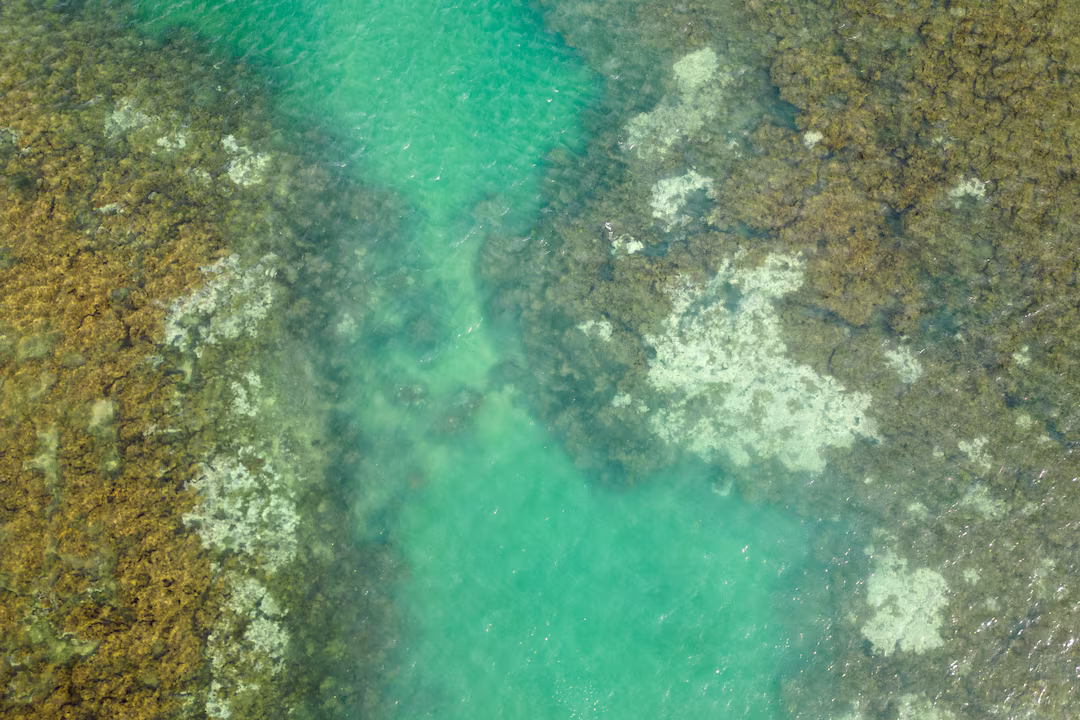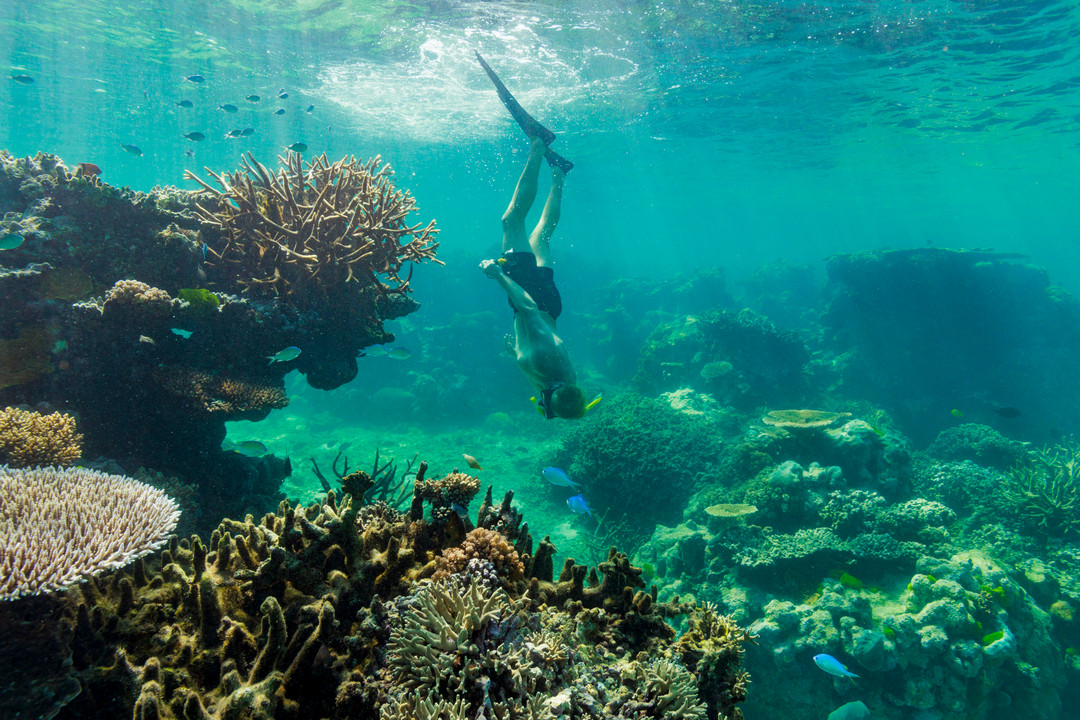Home to the only coral reef environments in the South Atlantic, Brazil is expected to incur a significant negative economic impact now that the reefs have been badly hit by a bleaching event of unprecedented scale caused by record high ocean temperatures. Specialists have warned that although a bleached coral reef is severely stressed rather than completely dead, recovery may take years.
Extending for 3,000 kilometers in the country’s northeastern region, Brazil’s coral reefs have been badly affected as have all other tropical regions, especially Florida (southern United States), the Caribbean, and the Eastern Tropical Pacific.
What happened?
The current bleaching episode, spanning the Atlantic, Pacific, and Indian Oceans, means vast stretches of tropical coral reefs are under severe stress, with potentially devastating consequences for coastal populations and marine ecosystems. Brazil is among the areas that have been hardest hit. The damage is most visible along the northeastern coast of Brazil in the states of Pernambuco, Alagoas, and Bahia.
Professor and researcher at the Federal University of Pernambuco (UFPE), Beatrice Ferreira, explains that in the Costa dos Corais Environmental Protection Area, located between the municipalities of Tamandaré (Pernambuco) and Maceió, the capital of Alagoas, several colonies have been affected.

“We had the first alerts in March, with a level 1 alert, and the bleaching really started with the most sensitive species,” Ferreira explains, referring to the alert scale used by NOAA (the American atmospheric and oceanic agency) in its satellite monitoring.
At level 1, the agency considers significant bleaching likely in the region.
Last year, due to record temperatures recorded in seas worldwide, NOAA updated the scale which until that time had a maximum alert level of 2 (severe bleaching). Now, the agency’s methodology goes up to level 5 alert with the risk of almost complete reef mortality.
The researcher has been studying the region for 30 years through the Long-Term Ecological Program in Tamandaré. The last time she recorded coral bleaching was in 2020. The most affected species in the last four years has been the fire coral, of the scientific species Millepora Alcicornis.
“We are possibly reaching over 80% of colonies of this species being affected in the shallowest areas,” says the scientist. “Now, we already see that the majority of species and colonies in shallow areas have been affected.”
Economic impact
Regarded as “an important asset” of the Brazilian economy, coral reefs provide spawning grounds and serve as nurseries for economically important fish populations. At least one in every four marine species lives or spends part of its life on coral reefs, where up to 65% of marine fish can be identified, making the reefs true underwater communities and also serving as food or shelter for passing animals.
According to a study by the Boticário Foundation, the reefs generate up to R$ 167 billion (US$32 billion) for Brazil in coastal protection services and tourism. In tourism alone, coral reef regions generate about R$ 7 billion annually in revenue (US$1.4 billion) which represents about 5% of Brazil’s tourism GDP. Each square kilometer of healthy coral reef can generate R$ 62.7 million annually in revenue from sun and beach tourism, diving, and snorkeling.

The disruption to human activities on coral reefs is already directly affecting the balance of these marine beings. Among the main issues are unsustainable tourism and fishing.
The state of northeastern Pernambuco state is one of the areas in Brazil that has been hardest hit by the ongoing coral bleaching. The region is home to at least 11,300 people who depend on fishing for their livelihoods and rely on the health of the coral reefs to support their families. Fishermen report that maintaining their livelihood is becoming increasingly difficult, as marine life is becoming scarcer along the coast due to coral bleaching.
“The quality of fishing has dropped significantly. All the fish I used to catch still exist, but in much smaller numbers, affecting the economy. I think this happens because nature is somewhat impaired,” says Flávio Conceição, from the fishing community of Brasília Teimosa in Recife.
“To counteract this, I spend more time offshore. The best fishing season is summer, but not every summer yields as much. Selling fish here itself, some people even come from Caruaru to buy,” he adds.
“The degradation of coral reefs increases the vulnerability of the coast, especially in extreme events that can cause major damage and material and immaterial losses. If the current situation of coral reef degradation remains unchanged, coastal regions will be even more exposed to flooding and erosion,” explains Ronaldo Christofoletti, member of the Nature Conservation Specialists Network and a Professor at the Institute of the Sea of the Federal University of São Paulo.
How bad is the situation?
Approximately 850 million people worldwide rely on coral reefs for food, employment, and coastal protection against storms. They also provide habitat for over 25% of all marine species.
A survey by the World Wildlife Fund warns that half of all tropical reefs have disappeared in the last century, and the world is on track to lose up to 90% of all coral reefs by the end of the century.
“If we needed a specific, visual, and current case of what’s at stake with every fraction of a degree of warming, this is it. The scale and severity of mass coral bleaching are clear evidence of the damage climate change is causing now. We must urgently act to stop burning fossil fuels or we will lose coral reefs worldwide, with devastating consequences for coastal communities and marine life,” says Pepe Clarke, Leader of the WWF Ocean Practice.

